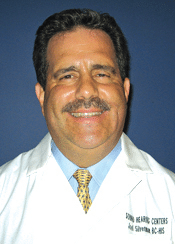
More Hearing Health Articles
Did You Know? Statistics On Hearing Loss
Having a hearing loss today is not as uncommon as one may believe. However, it seems as if seeking treatment is less likely to occur with those who do have a hearing loss. The following statistics from the Better Hearing Institute below illustrate this gap between those with hearing losses and those who seek care. It is surprising to be reminded that there are so many that are not receiving the care that they should have.
One in four workers exposed to high levels of noise will develop a hearing loss.
Only 13% of general practitioners screen for hearing loss.
Three in every 10 people over age 60 have a hearing loss.
1 in every six baby boomers (ages 41-59) has a hearing loss.
1 in every 14 Generation X'ers (29-40) already has a hearing loss.
1.4 million children (under 18) have hearing problems.
Only one out of five people who could benefit from a hearing aid actually wear one.
Nine out of 10 hearing aid users report improvements in their quality of life.
Clearly, these statistics are startling. This truly indicates that a lot of people are choosing to go without the benefits of solutions for their hearing loss. Most often, this can be due to confusion over what benefit hearing aids can provide and which type of hearing aid is best for a specific person's loss. Also, cost can be a factor. Some hearing centers provide complimentary consultations to identify which hearing aid products may be recommended for each patient's unique hearing loss.
Other Articles You May Find of Interest...
- 6 Secrets to Getting Your Stubborn Parent to Try Hearing Aids
- Five Important Reasons To Schedule A Yearly Hearing Exam
- Difficulty Hearing Over The Phone?
- Hearing Loss and Your Overall Health
- Assistive Telecommunications Equipment Provided By the State
- Speech Disability and Using the Telephone
- Keeping Maryland Residents Connected

















